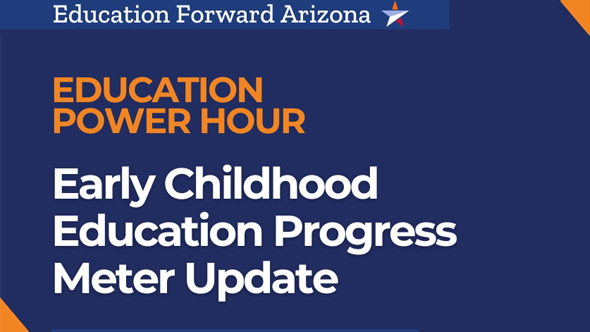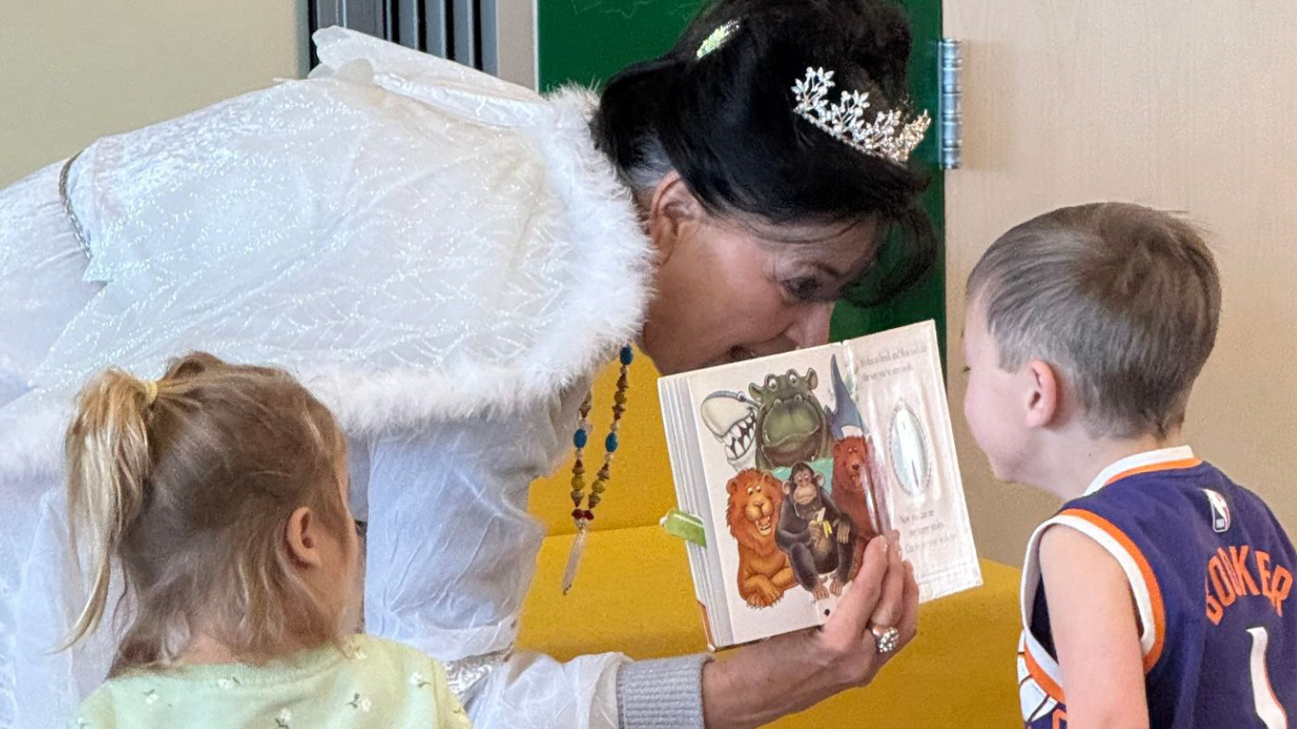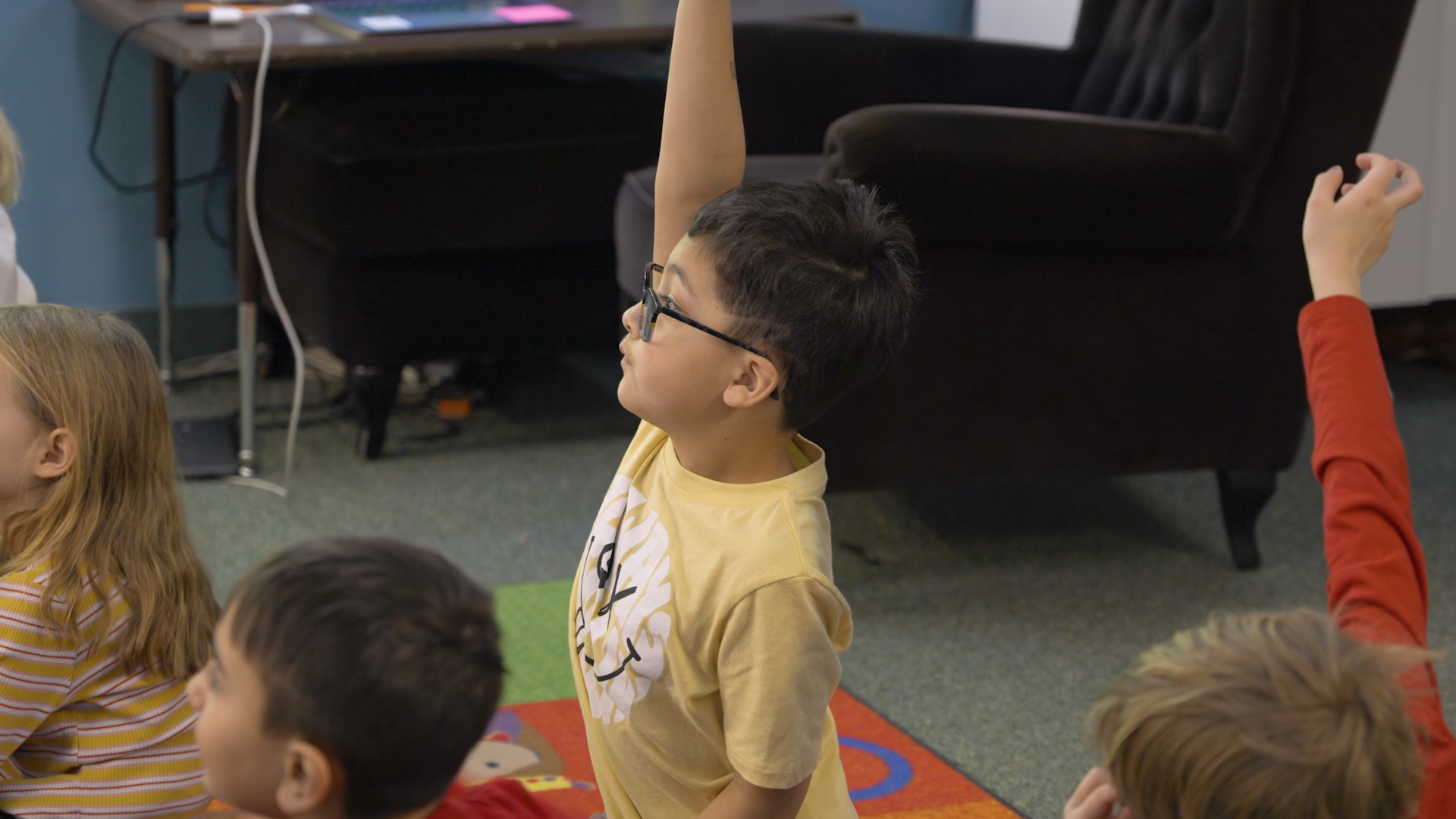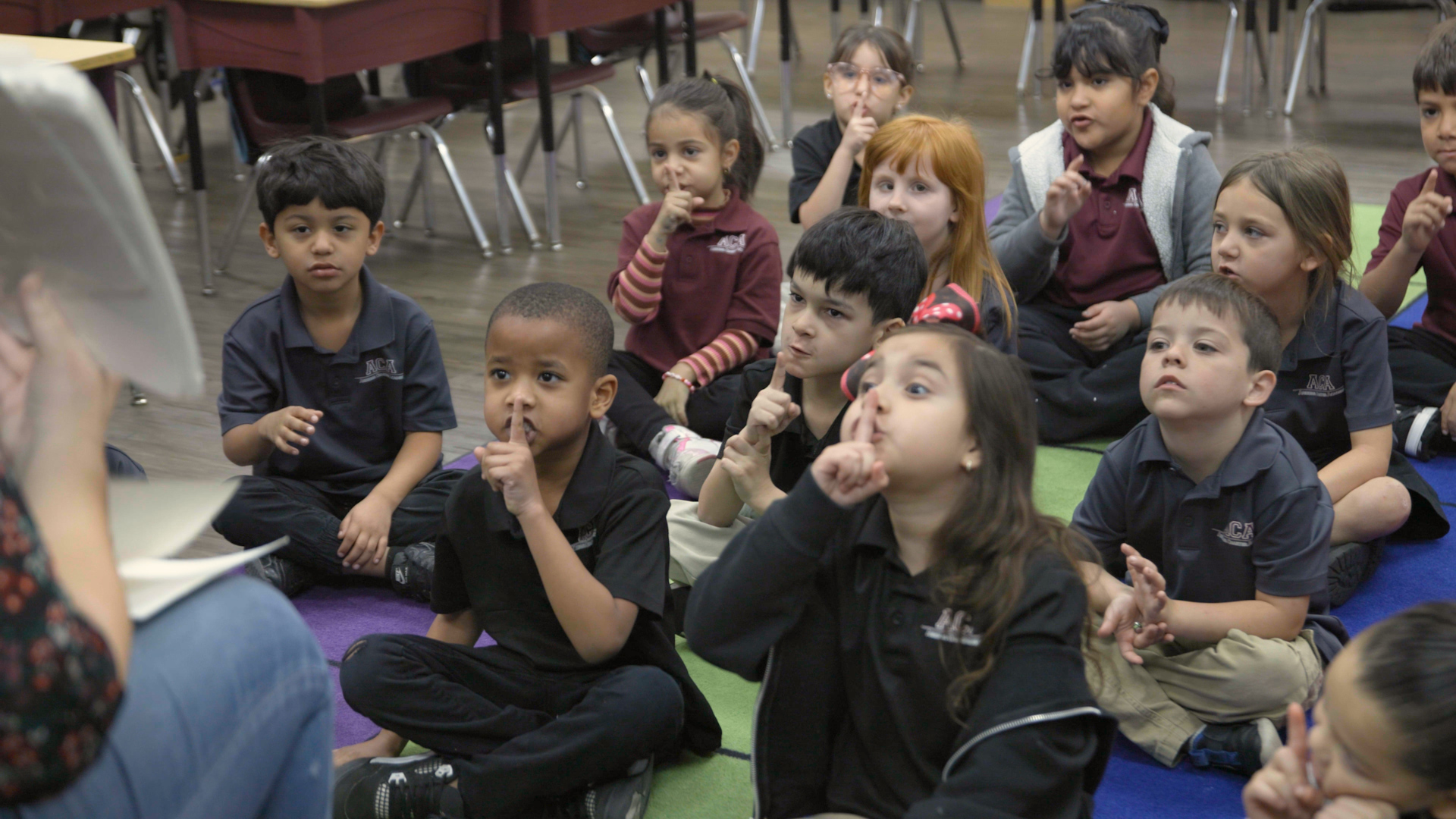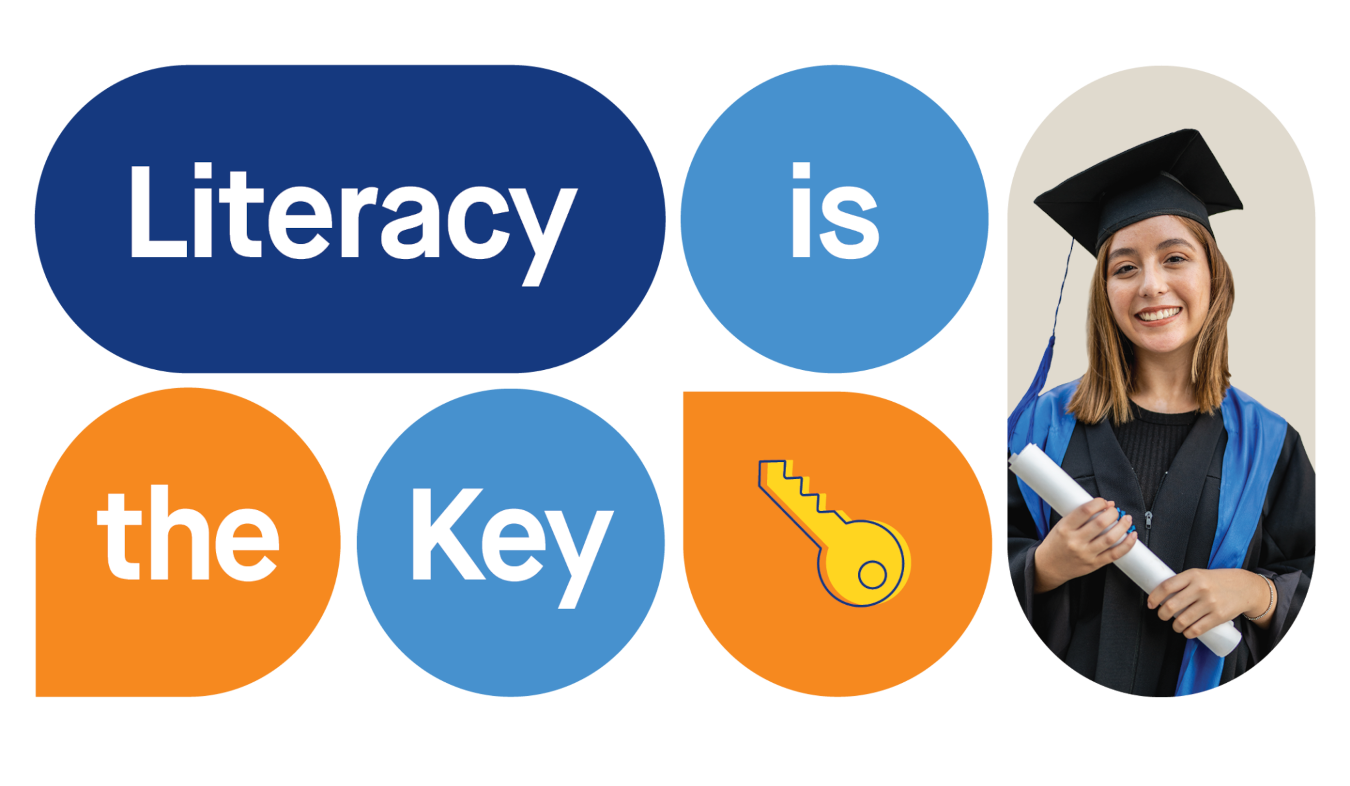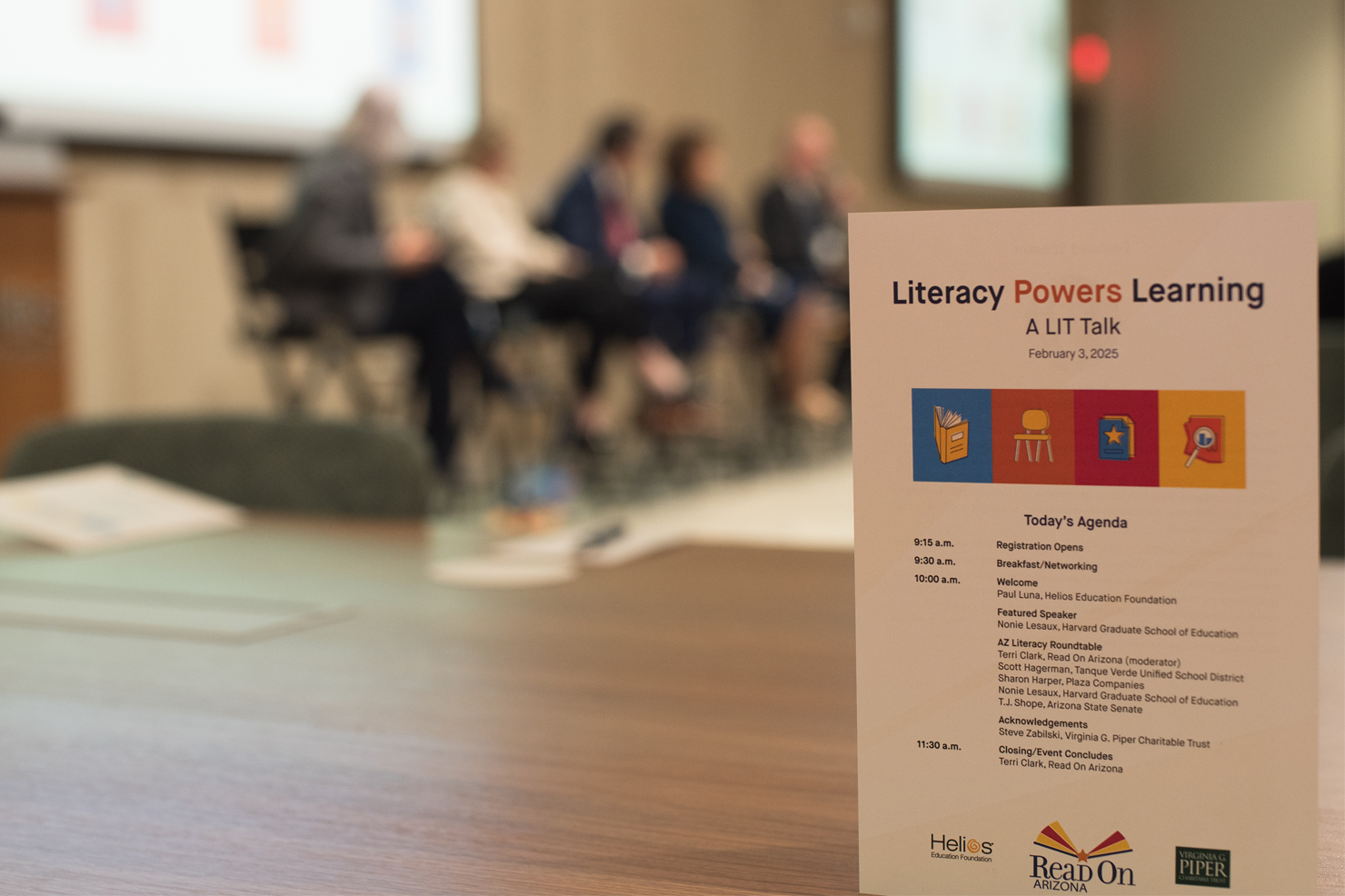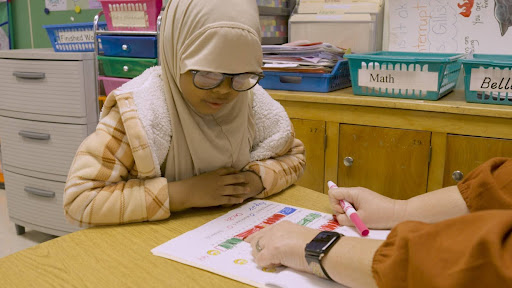
June 23, 2018
Literacy News
Arizona Republic | Lauren Castle | June 23, 2018
Children have more free time in the summer to have fun. From enjoying summer camps to video games and TV, there are endless possibilities of entertainment.
But beware of summer brain drain.
For elementary school students, the loss of reading skills over the summer accounts for two-thirds of the achievement gap in reading between low-income children and their middle-income peers by ninth grade, according to the National Summer Learning Association.
The group, which works to close that achievement gap, said low-income children typically lose two to three months worth of reading skills every summer.
And in Arizona, this summer loss of skills comes on top of already concerning reading levels. An analysis by The Arizona Republic of preliminary AzMerit test results showed that 56 percent of third-graders aren't proficient in reading.
Organizations across Arizona are working to improve the state's literacy rate. They offered some tips parents can use to prevent summer reading loss:
Let kids pick their own books
"Let them pick the book as much as you can," said Terri Clark, literacy director for Read On Arizona. "And it doesn't have to be chapter books. If they like graphic novels, start there. Sports Illustrated for Kids, comics, even recipes while you're cooking dinner can all be fair game."
Sophie Etchart, CEO for Read Better Be Better, said allowing children to choose their book helps them understand that there is a book for everyone.
"There is a book that they will love reading, they just have to find it," Etchart said. "Once they've found it, they will want to keep going back to the library to find more."
Ask older siblings to help
Older siblings can help boost reading skills, according to Etchart. Read Better Be Better's service-learning program trains eighth-graders to help third-graders with literacy skills.
"Older siblings, when given the opportunity and shown the benefits, love taking on that role with the little ones," she said. "If encouraged and helped to maintain a consistent effort, both the little and the big will soon see the results and will be encouraged to keep it up."
If a family feels their efforts are not improving the child's skills, Etchart said it is important to remain positive.
"We want students to have a positive association with reading," she said. "We want them to feel engaged and empowered."
Clark said families can also enlist the help of their community.
"Summer or after school programs, local tutoring programs, family literacy nights and your child's teacher are terrific resources in helping to find the best way to support your child in strengthening their reading skills all year round," she said.
Try reading out loud
Etchart said children who are shy or nervous can benefit from reading out loud.
Children can read to their favorite stuffed animal, pet or a younger sibling.
"We have found that, if students feel that they are helping others, it breaks down the boundaries and negativity they might have around not being 'good enough,' " she said.
Take a trip to the library
Public libraries across the state offer summer reading programs for children. Children can read a certain amount each day in order to gain points for prizes.
"Reading changes everything, at every age," Phoenix librarian Rita Hamilton said. "The earlier children develop a love for and ability to read, the better life potential they will have."
The Phoenix Public Library's program encourages participants to read at least 20 minutes a day.
In some neighborhoods, families can find free used books at a Little Free Library.
"Literacy is more than decoding and includes speaking, listening, comprehension and critical thinking," Clark said.
Make reading fun
Clark said families can find unique ways to boost reading skills on sites like Pinterest.
"Things like book bingo, family book club, and game night can all be opportunities to build reading skills," she said.
Children can listen to audio books in the car or at home to help them piece together a story, a character's feelings and to guess what might happen next in the plot.
"Literacy is more than decoding and includes speaking, listening, comprehension and critical thinking," Clark said.
Storyline Online features videos of celebrities reading children's books out loud. Children can listen to the actors while look at illustrations from the website created by the Screen Actors Guild-American Federation of Television and Radio Artists Foundation.
However, Etchart warns to monitor screen time over the summer.
"Too much screen time over the summer will not help with learning loss," she said, instead suggesting board games, puzzles and group activities. "We believe that any activity during which students sit and concentrate will ultimately help develop their literacy skills."
Article originally published in the Arizona Republic.
